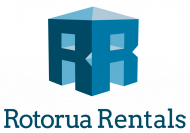While you are enjoying the sun and the start of 2022, the team at Rotorua Rentals is wrapping up the year just been. 2021 has been hectic. New legislation has been proposed and some legislation with the potential to cause major changes has come into effect. From the Phase 2 rollout of the Residential Tenancies Amendment Act 2020 (RTAA 2020) to upcoming changes in the Healthy Homes Standards, it can be a lot for a landlord to keep track of. Fortunately, we have created a list of all the major changes and announcements you need to know from the past year!
February
February was a big month for landlords and tenants this year. The RTAA (2020) entered its second phase, which resulted in an increase in regulations for landlords.
- The Residential Tenancies Amendment Act 2020 entered Phase 2 of its rollout.
- There are changes to the notice periods that both landlords and tenants must give to end a tenancy. Additional changes include:
- Landlords can’t end a periodic tenancy without cause.
- There are new reasons to provide tenants with notice to end a tenancy.
- There is a new process to terminate a tenancy for anti-social behaviour.
- Fixed Term Tenancies signed after 11th February will convert to periodic tenancies at the end of the fixed term unless:
- The landlord and tenant agree not to convert to a periodic tenancy.
- The landlord gives notice in accordance with the termination grounds for periodic tenancies.
- The tenant gives 28 days’ notice to end the tenancy.
- Certain changes can be made to a property:
- Tenants can ask to make changes to the rental property.
- Landlords cannot decline if the change is minor.
- Landlords must respond within 21 days
- Rental bidding is prohibited:
- The cost of rent must be stated in advertisements or offers for the property.
- Landlords cannot apply pressure on potential tenants to pay more rent for a property than advertised.
- Prospective tenants may offer to pay more rent than advertised and a landlord may accept this offer.
- Tenants can ask for fibre broadband to be installed at the rental property. The landlord must agree providing:
- It is possible to install without damaging the property.
- Installation of fibre broadband will not be in breach of any other regulations.
- The Tenancy Tribunal decides that the landlord does not have to install fibre.
- The landlord plans to begin extensive work on the property, that would be impacted by fibre installation, starting within 90 days of the tenant’s request.
- At any time, tenants can request to assign their tenancy to someone else.
- All requests to assign a tenancy must be considered and cannot be declined unreasonably.
- Clauses included in a tenancy agreement that prohibit tenancy assignment have no effect if the tenancy was granted after 11th February 2021.
- Landlords are required to keep records relating to the property and tenancy.
- The landlord must provide a signed tenancy agreement in writing to the tenant.
- The landlord must keep and provide certain records about the property.
- The Ministry of Business, Innovation and Employment (MBIE) has new means of enforcing the Residential Tenancies Act.
- There are four new enforcement measures for MBIE. These are:
- The Tenancy Tribunal has seen an increase in jurisdiction.
- The Tribunal can hear cases and make awards up to a value of $100,000. This is an increase from $50,000.
- Landlords and tenants can apply for a suppression order from the Tribunal. The Tribunal may order your records not be published if:
- You are mostly, or fully, successful in your Tribunal hearing.
- The Tribunal does not consider publication to be in the public interest.
- Publication is not justified because of the landlord’s or tenant’s conduct.
- There are changes to the notice periods that both landlords and tenants must give to end a tenancy. Additional changes include:
March
Although February saw a massive legislation rollout, property investors don’t get to rest yet. Prime Minister Jacinda Ardern revealed the details of the Government Housing Package. The package includes changes for how property investors are taxed and policies that make the housing market more accessible to first home buyers.
- The Government Housing Package was announced.
- There is new tax policy
- Doubling the Bright-Line test from 5 to 10 years for property acquired on or after 27th
- Phasing out the ability to claim interest payments as an expense against your residential property income.
- There is new policy to make the property market more accessible
- $3.8 billion Housing Acceleration Fund with the goal of increasing the speed and quantity of houses being built.
- Increasing the caps on first home grants and loans to enable more first home buyers to buy homes. This policy came into effect on 1 April 2021.
- There is new tax policy
May
As banks are phasing out cheques, Tenancy Bond Services has accepted direct debit for payments of multiple bonds.
- Multiple bond payments can be lodged by direct debit.
July
July was another big month for residential landlords. 1st July brought with it more Healthy Homes Standards. For information on the Healthy Homes compliance deadlines, and to prepare yourself for future deadlines, check out our blog post on the topic.
- First compliance date for rental properties to meet the five healthy homes standards
- Boarding houses must meet the five healthy homes standards.
- Private rentals must meet the five healthy homes standards within 90 days of any new or renewed tenancies that start on or after this date.
October
1st October was the first major date for interest rates in the tax legislation included in the Government housing package.
- Percentage of interest on a property loan that is tax deductible drops from 100% to 75% for properties acquired before 27th March.
- Percentage of interest that is tax deductible drops from 100% to 0% for properties acquired on or after 27th March.
- For more information see the IRD factsheet
December
As we approach the end of the year it becomes a time to look forward to the coming year, but also look backwards. This month brought announced updates to the Healthy Homes Standards.
- Government announced upcoming changes to Healthy Homes Standards that are expected to come into effect in April 2022.
- Updating heating standards to reflect how certain properties retain heat. Applies to:
- Certain apartments
- Certain newly built homes
- Properties renovated to the 2008 building code requirements for insulation and glazing
- Updating heating standards to give all properties additional flexibility.
- Alternative pathway to compliance
- A new ‘top-up’ heating allowance
- A new tolerance for existing insufficient heating capacity (from 90% to 80%)
- Allows geothermal heating systems to satisfy the heating standard
- Allow mechanical ventilation systems that continuously extract from kitchens and bathrooms
- Updating the moisture ingress and drainage standard to clarify that landlords are not required to install alternative moisture barriers where it is not reasonably practicable to install a polythene barrier.
- Updating heating standards to reflect how certain properties retain heat. Applies to:
- Rotorua Rentals released their first Annual Property Wrap-Up. The Wrap-Up means you can read about the year’s major changes to the property market that affect you as a landlord.
This has been an interesting year with some major property legislation being rolled out and announced. At Rotorua Rentals, we keep on top of these changes to make sure you stay on the right side of the law. As well as legislation knowledge, we also provide all aspects of property management, from tenant selection right through to rent collection and maintenance. At Rotorua Rentals, we can help take the overall stress out of being a landlord. If you’re a landlord struggling to keep on top of the latest legislation, get in touch to see how we can help!

